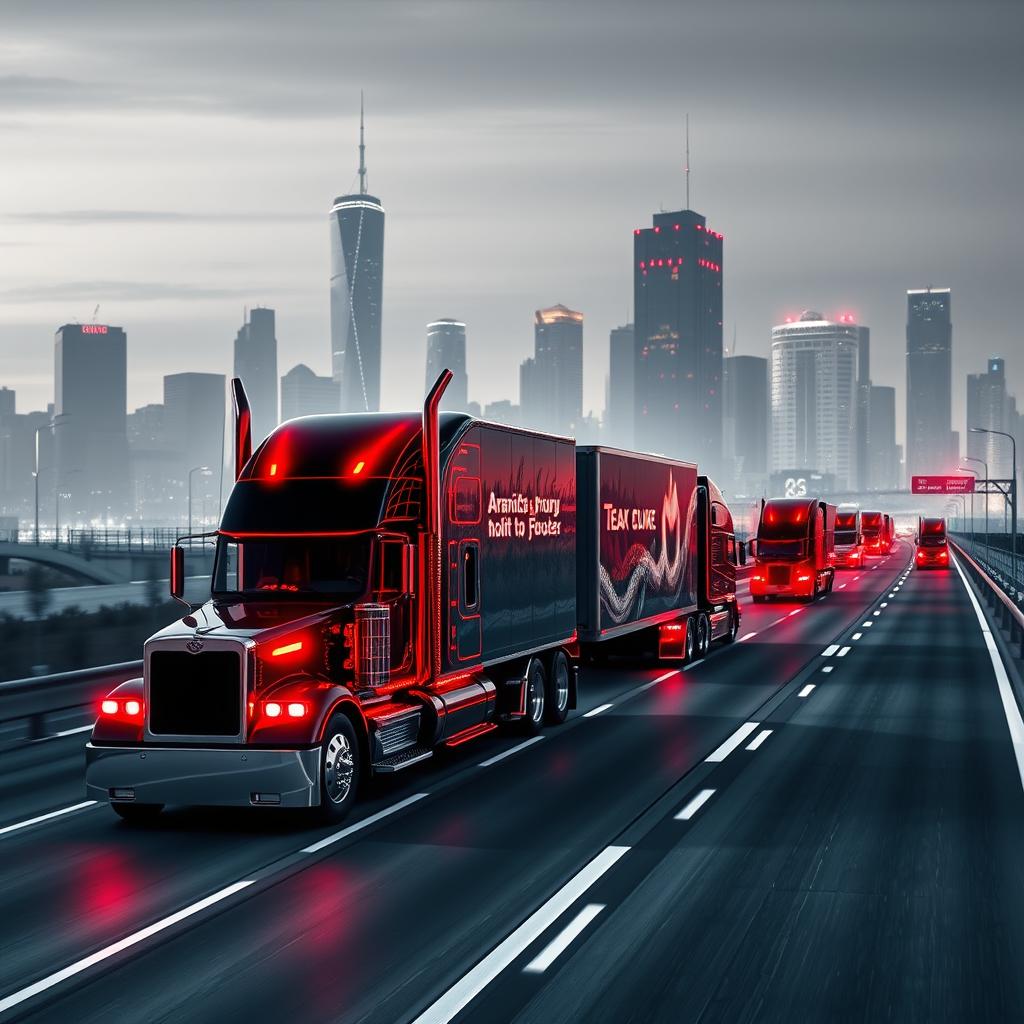The Future of American Trucking: Key Trends
The landscape of American trucking is undergoing a dramatic transformation. As we navigate through technological advancements, regulatory changes, and evolving consumer demands, future trends in American trucking are reshaping this vital industry that serves as the backbone of our economy. From autonomous vehicles to green initiatives, the trucking sector is experiencing unprecedented changes that will define its trajectory for decades to come.
The Rise of Autonomous Trucking Technology
The conversation about self-driving trucks has moved from science fiction to reality. Major players like TuSimple and Waymo are already testing autonomous trucks on American highways, marking a significant milestone in transportation history. While fully autonomous trucks aren’t yet commonplace, the technology is rapidly advancing.
The implementation of autonomous systems is occurring in stages:
– Level 1: Driver assistance features
– Level 2: Partial automation
– Level 3: Conditional automation
– Level 4: High automation
– Level 5: Full automation
Currently, most autonomous trucking initiatives focus on Level 3 and Level 4 automation, where human drivers remain present but systems can handle most driving tasks under specific conditions. According to recent research from McKinsey, autonomous trucks could reduce operating costs by up to 45% and save the trucking industry $85-125 billion annually.
Impact on Employment and Skills
The advent of autonomous technology doesn’t necessarily spell the end for truck drivers. Instead, their roles are evolving to become more technical and supervisory. Modern truckers are increasingly required to:
– Monitor autonomous systems
– Manage complex logistics software
– Handle emergency interventions
– Maintain sophisticated equipment
– Coordinate with AI-powered dispatch systems
Electrification and Alternative Fuel Solutions
The push toward sustainable transportation is revolutionizing how trucks are powered. Electric trucks are gaining traction, with manufacturers like Tesla, Volvo, and Daimler investing heavily in electric vehicle (EV) technology. The benefits of electric trucks include:
- Lower operating costs
- Reduced maintenance requirements
- Zero direct emissions
- Quieter operation
- Potential tax incentives
Hydrogen and Natural Gas Options
While electric trucks are making headlines, hydrogen fuel cell technology is emerging as another viable alternative, especially for long-haul operations. Companies like Nikola Motors are developing hydrogen-powered trucks that promise:
– Longer range than battery-electric vehicles
– Faster refueling times
– Zero emissions
– Comparable performance to diesel engines
Digital Transformation and Connected Technologies
The integration of digital technologies is revolutionizing fleet management and logistics operations. Advanced telematics systems provide real-time data on:
- Vehicle performance
- Driver behavior
- Route optimization
- Fuel efficiency
- Maintenance needs
Blockchain in Logistics
Blockchain technology is transforming supply chain transparency and efficiency. This decentralized system offers:
– Improved traceability
– Enhanced security
– Streamlined documentation
– Real-time cargo tracking
– Automated smart contracts
Regulatory Changes and Safety Innovations
The regulatory landscape continues to evolve, with a focus on safety and efficiency. Key developments include:
Electronic Logging Devices (ELDs)
The mandatory implementation of ELDs has improved hours-of-service compliance and safety monitoring.
Safety Technologies
Modern trucks are equipped with advanced safety features:
– Lane departure warning systems
– Automatic emergency braking
– Blind spot detection
– Advanced driver assistance systems (ADAS)
– Smart cameras and sensors
Last-Mile Innovation and Urban Logistics
The growth of e-commerce has intensified focus on last-mile delivery solutions. Urban areas are seeing the emergence of:
– Micro-fulfillment centers
– Electric delivery vans
– Automated delivery vehicles
– Smart routing systems
– Consolidated delivery hubs
Collaboration with Other Technologies
The integration of drones and autonomous ground robots with traditional trucking operations is creating innovative hybrid delivery solutions, particularly in urban environments.
Workforce Development and Training
The evolving nature of the trucking industry requires new approaches to workforce development:
- Virtual reality training programs
- Technical certification requirements
- Digital literacy training
- Advanced safety protocols
- Continuous education programs
The industry is also addressing the driver shortage through:
– Improved working conditions
– Competitive compensation packages
– Work-life balance initiatives
– Career advancement opportunities
– Inclusive recruitment strategies
Conclusion
The future of American trucking is characterized by innovation, sustainability, and digital transformation. As we move forward, the industry will continue to adapt to new technologies, regulatory requirements, and market demands. Success in this evolving landscape requires staying informed about emerging trends and being prepared to embrace change.
Whether you’re a fleet operator, technology provider, or industry stakeholder, now is the time to position yourself for the future of trucking. Our team of experts can help you navigate these changes and implement solutions that will keep your business competitive in this rapidly evolving industry.
Contact us today at +1 206-337-4787 to discuss how we can help you prepare for the future of trucking. Let’s work together to ensure your business stays ahead of the curve in this exciting time of transformation.






